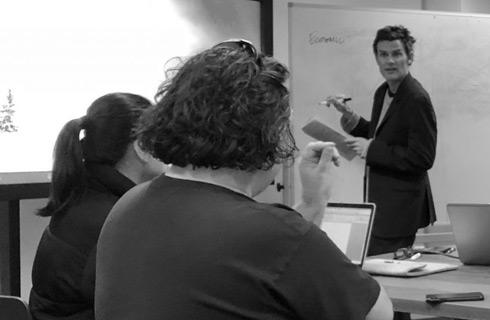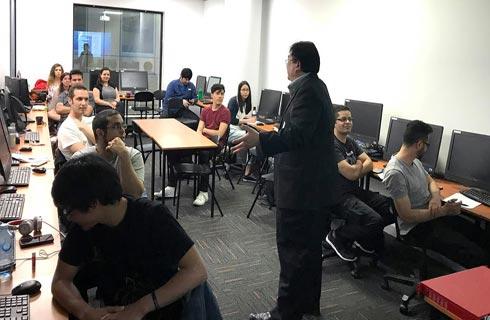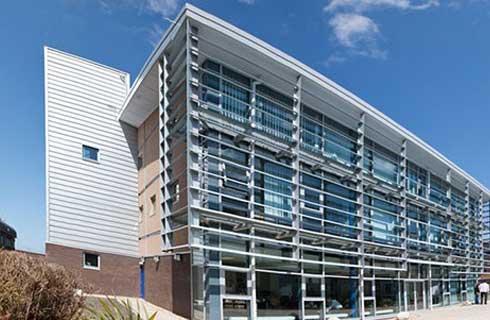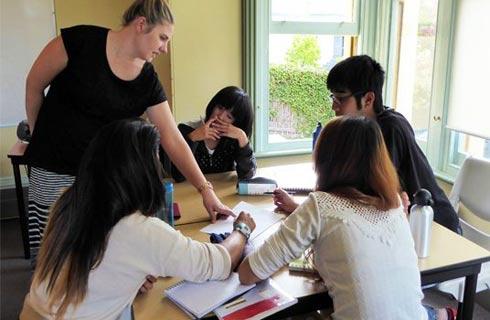遗传学生物医学学士
Bachelor of Biomedicine in Genetics

学历文凭
Bachelor Degree

专业院系

开学时间

课程时长

课程学费

国际学生入学条件
IDP—雅思考试联合主办方

雅思考试总分
- 雅思总分:
- 托福网考总分:
- 托福笔试总分:
- 其他语言考试:
CRICOS代码: 058838G
申请截止日期: 请与IDP联系 以获取详细信息。
课程简介
The Biomedicine degree includes core subjects and 15 majors to choose from. This provides you with the foundations for a broad range of professional health pathways. Core second and third year subjects - available only to you as a Biomedicine student. The two second year integrated subjects emphasise the relationships between different biomedical disciplines – it’s about enhancing your understanding of the human body in its full complexity. In third year the core subjects take on a more clinical (Molecules to Malady) or Population (Frontiers in Biomedicine) focus, tying all the elements of your Biomedicine journey together. The Bachelor of Biomedicine is ideal preparation for a career in medicine and professional health. While one third of our graduates enter the Doctor of Medicine (MD) program at this university – representing over half of the domestic intake for the MD – even more choose another graduate course at Melbourne.Students completing a Genetics major will be prepared for careers or advanced study which involve the application of fundamental genetics, genomics, evolutionary, population and ecological genetics to all areas of biology, biomedical sciences and biotechnology. Graduates will develop knowledge and skills in the theory of genetics and molecular biology, population genetics and evolution and in experimental design, data recording and analysis and scientific writing, which are essential preparation for roles in universities, research institutes, government departments, hospitals and in the biotechnology industry. This major will integrate knowledge across the breadth of genetics, including an integrated practical capstone subject in which the students develop an understanding of the application of experimental analysis to solving problems in biology. Students will gain experience preparing them for the workplace by participating in problem-solving, synthesis of information, written work, and independent as well as collaborative activities. The transferable skills developed in this major can be used in broad careers in science, including conservation, teaching, forensics, publishing, genetic counselling and research and in careers beyond the field of science.
相关申请
 预科
预科 奖学金
奖学金 实习机会
实习机会 在校学习
在校学习 跨境学习
跨境学习 校园授课-线上开始
校园授课-线上开始 在线/远程学习
在线/远程学习
开学时间&学费
学费信息仅供参考,请与IDP联系以获取详细信息
| 开学时间 | 时长 | 学费 | 地点 |
|---|
学校排名

世界排名32
数据源:
泰晤士高等教育世界大学排名
关于墨尔本大学

墨尔本大学拥有独特的学习环境,拥有一系列专门为实现突破性发现而设计的可持续设施和校区。 该大学的研究和教育旨在解决当前现实世界的社会问题,重点关注关键的全球问题。该大学的研究网络支持澳大利亚和国际舞台上的尖端发现。 墨尔本历史悠久的帕克维尔校区位于三个全球公认的创新区的中心,该大学的八个专业校区提供生命科学和农业方面的沉浸式教育。 墨尔本的学生为未来在产业界和学术界的职业成功做好了充分的准备。墨尔本有太多值得体验的地方。 搬到这座城市的学生可以确信,他们将在澳大利亚的文化、美食和体育之都留下终生难忘的回忆。 墨尔本一直被经济学人智库评为世界上最宜居的城市之一。 人均咖啡馆、酒吧和餐馆的数量比世界上任何其他城市都多。 这意味着学生有很多地方可以与朋友见面、放松身心并吸收墨尔本独特的文化。墨尔本大学确保学生快速在这座城市安顿下来。 该大学为首次前往澳大利亚的学生提供量身定制的帮助。 大学设有专门的学生生活计划,以确保国际学生在当地文化和大学社区中感到宾至如归、与社区互动并茁壮成长。 该大学拥有世界上文化最多元化的学生群体之一,欢迎来自全球 160 多个国家/地区的国际学生。 墨尔本卓越的支持服务为学生在大学期间提供帮助,并为所有学生提供服务,即使他们毕业后也是如此。
本校相关课程
其他相关课程

生物医学学士
 皇家墨尔本理工大学
皇家墨尔本理工大学学历文凭
Bachelor Degree
开学日期
课程费用总额


哲学硕士-生物医学和生物化学
 澳大利亚国立大学
澳大利亚国立大学学历文凭
Masters Degree (Research)
开学日期
课程费用总额


生物医学学士
 詹姆斯·库克大学
詹姆斯·库克大学泰晤士高等教育世界大学排名:361
学历文凭
Bachelor Degree
开学日期
课程费用总额


理学学士(海洋生物学)
 弗林德斯大学
弗林德斯大学泰晤士高等教育世界大学排名:307
学历文凭
Bachelor Degree
开学日期
课程费用总额


理学学士-海洋生物学(荣誉学位)
 弗林德斯大学
弗林德斯大学泰晤士高等教育世界大学排名:307
学历文凭
Bachelor Degree with Honours
开学日期
课程费用总额


城市与环境规划学士/海洋生物学理学学士
 格里菲斯大学
格里菲斯大学泰晤士高等教育世界大学排名:258
学历文凭
Dual Degree
开学日期
02 March 2026
课程费用总额
AUD 167,500
















